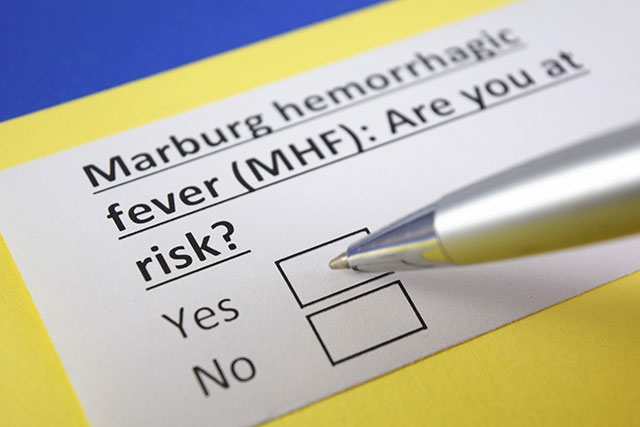
Women who will receive Pfizer's COVID-19 vaccine must not breastfeed or get pregnant for two months after immunization. A safety guide released by the British government said that children and pregnant or breast-feeding mothers should not be immunized using the vaccine. The guide also mentioned that any effects of the pharmaceutical firm's vaccine candidate on fertility are "unknown."
The U.K. government's 10-page Reg 174 Information for U.K. Healthcare Professionals describes how Pfizer's BNT162b2 mRNA vaccine, developed with German firm BioNTech, should be stored, diluted and administered to people. Section 4.6 of the guide, which deals with fertility, pregnancy and lactation said: "COVID-19 mRNA Vaccine BNT162b2 is not recommended during pregnancy … [and] should not be used during breast-feeding." It also warned women of child-bearing age that "pregnancy should be excluded before vaccination" and "to avoid pregnancy for at least two months after their second dose."
Prior to the safety guide, two medical professionals wrote to the European Medicine Agency to stop human trials. Doctors Wolfgang Wodarg and Michael Yeadon indicated in their Dec. 1 letter that some of the vaccines to be tested, including that of Pfizer's, may prevent the safe development of placentas in pregnant women.
The doctors explained that "several vaccine candidates are expected to induce the formation of humoral antibodies against spike proteins of SARS-CoV-2," among them syncytin-1. This protein found in the spike proteins of SARS viruses is also responsible for the development of a placenta in human beings. Wodarg and Yeadon further elaborated: "There is no indication whether antibodies against spike proteins of SARS virus would also act like anti-syncytin-1 antibodies. However, if this were to be the case, this would then also prevent the formation of a placenta – which would result in vaccinated women essentially becoming infertile."
Anyone who suffers adverse effects can't bring the drugmaker to court
Wodard and Yeadon's letter to the European vaccine regulator comes amid the U.K. approving BNT162b2 for domestic use. The British government formally authorized Pfizer's vaccine candidate on Dec. 2, with the first batch of immunizations set to roll out a week later. This initial batch will see health care workers, care home staff and residents and people aged 80 and above being immunized against the Wuhan coronavirus. (Related: London Mayor Sadiq Khan: Minorities should get coronavirus vaccine first.)
Department for Health and Social Care (DHSC) Secretary Mark Hancock confirmed the authorization in a Dec. 2 tweet: "Help is on its way. The Medicines and Healthcare products Regulatory Agency has formally authorised the Pfizer/BioNTech vaccine for COVID-19. The National Health Service (NHS) stands ready to start vaccinating early next week."
However, anyone who is injured during the course of the immunization program – including pregnant and lactating women – will not be able to sue for damages. The Independent reported Dec. 3 that the U.K. government has granted Pfizer a legal indemnity, protecting it from any lawsuit filed as a result of any problems with its vaccine. NHS staff providing the vaccine and other manufacturers are also shielded from any legal liability as per the indemnity. (Related: Vaccine manufacturer Pfizer already starting to pre-blame "anti-vaxxers" for why their vaccine isn't stopping the coronavirus.)
Meanwhile, the DHSC remarked that the government would be adding the COVID-19 jab to the list of vaccinations covered by the Vaccine Damages Payment Act. Under the law, people who are "permanently disabled or harmed" as a result of a listed vaccination will receive a one-off payment of £120,000 (US$161,274).
Pfizer's two-dose COVID-19 vaccine calls for a storage temperature of -70 degrees Celsius (-94 degrees Fahrenheit); otherwise, its ingredients would break down and the jab would fail to protect against the Wuhan coronavirus. These new COVID-19 shots contain potentially hazardous ingredients that have never been tested before.
Children's Health Defense reported in August that mRNA vaccines such as that of Pfizer and Texas-based pharmaceutical firm Moderna rely on a nanoparticle-based "carrier system" containing a synthetic chemical called polyethylene glycol (PEG). The report also mentioned that the use of PEG in drugs and vaccines is "increasingly controversial" as numerous adverse reactions caused by the chemical have been documented. The anti-vaccination group warned that if an mRA vaccine for COVID-19 is approved, more people would be exposed to PEG – a "potentially disastrous" scenario. (Related: Experts warn mRNA vaccines could cause irreversible genetic damage.)
VaccineInjuryNews.com has the latest about the risks of vaccines being developed to fight the ongoing pandemic.
Sources include:
Assets.Publishing.Service.gov.uk [PDF]
Please contact us for more information.





















